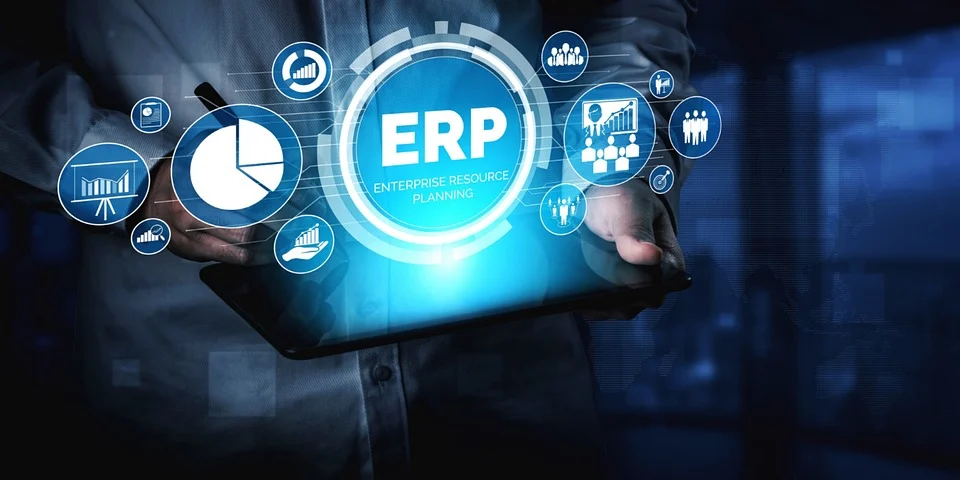Enterprise Resource Planning (ERP) software has been the pace-setter of business processes in industries for several decades. ERP in 2025 is expanding at a never-before-seen rate with advanced cutting-edge technologies like artificial intelligence (AI), cloud computing, and automation. As industries—particularly manufacturing—continue to experience global competition, the need for smarter, speedier, and more agile systems only increases.
In this blog, we’re diving into the key ERP trends that are set to shape 2025 and how these exciting innovations are paving the way for the future of manufacturing ERP and boosting efficiency across enterprises.
1. AI-Driven ERP for Smarter Decision-Making
Artificial Intelligence is no longer merely a buzzword in ERP, it’s a native feature. ERP systems in 2025 are supported by AI and machine learning capabilities that enable businesses to predict trends, automate repetitive processes, and make real-time judgments.
For producers, AI-based manufacturing ERP systems allow:
- Predictive maintenance of equipment
- Smart forecasted inventory
- Automated quality inspections
- Dynamic supply chain optimization
These innovations minimize human error, save time, and boost productivity on all fronts.
2. Cloud ERP Becomes the Standard
The shift from on-premise to cloud ERP is accelerating in 2025. With its exceptional flexibility, scalability, and remote access, the cloud ERP is turning out to be an imperative in the new hybrid workspace.
Benefits of cloud-based enterprise resource planning software:
- Lower infrastructure cost
- Easy software updates and maintenance
- Easy access to data in real-time from anywhere
- Can be easily integrated with other tools (CRM, SCM, etc.)
For manufacturers, cloud ERP ensures uninterrupted operations across multiple locations and provides a single source of truth for all stakeholders.
3. Hyper-Personalization and Modular ERP
Companies today are moving away from one-size-fits-all to ERP solutions. Today, in 2025, companies are opting for modular ERP solutions, where they can select particular modules that meet their unique workflows.
This is quite beneficial to manufacturing ERP, where compliance, manufacturing processes, and reporting requirements are quite diverse. Businesses may customize ERP configuration by size, industry, and even by certain operational objectives.
4. ERP Meets IoT and Edge Computing
The Internet of Things (IoT) and edge computing are really transforming ERP systems by delivering real-time data straight from the shop floor, warehouses, and logistics. In the manufacturing sector, ERP software now connects with machine sensors, giving instant updates on performance, wear, and energy consumption. Edge computing allows the data to be processed locally, reducing latency and improving decision-making.
These integrations enable enterprise resource planning software to be proactive instead of reactive.
5. Cybersecurity in ERP Becomes a Priority
Since ERP systems use sensitive business information, security is becoming a major concern in 2025. Cloud ERP providers are enhancing security with:
- Multi-factor authentication
- Role-based access control
- Real-time threat detection
- Regular vulnerability assessments
For manufacturing companies that handle sensitive information like intellectual property and trade secrets, as well as manage large-scale logistics, protecting data is absolutely essential. Nowadays, ERP systems come equipped with built-in encryption and compliance features to meet global standards.
6. Sustainable ERP Practices
Sustainability is not a trend anymore; it is becoming a requirement. The next generation ERP solutions facilitate green projects through:
- Monitoring energy and resource usage
- Managing sustainable supply chains
- Assisting in compliance with environmental regulations
Manufacturing ERP systems now provide functionality that computes the carbon footprint of every product line and maximizes resource utilization.
7. ERP for SMBs: No Longer Reserved for the Big Players
Thanks to the cloud technology and subscription models, small and mid-sized businesses (SMBs) now have access to powerful ERP solutions. They are available in 2025, with user-friendly interfaces and industry-specific templates.
This change levels the playing field, giving small and medium-sized businesses in industries like manufacturing and retail a fair shot to compete with bigger companies when it comes to efficiency and agility.
Conclusion: Power Your ERP Transformation with Elite Mindz
As ERP technology continues to evolve, businesses must stay ahead by adopting the latest innovations that promote flexibility, insight, and control. If you’re in the manufacturing industry or you’re operating a business that wants to incorporate AI into your operations, choosing the right enterprise resource planning software can be the difference.
At Elite Mindz, we cater to designing ERP solutions that fit your business’s industry, size, and requirements. Our cloud-ready platforms are equipped with AI, robust analytics, and easy integration capabilities that make them ideal for businesses that are keen on succeeding in 2025 and beyond.
Are you ready to scale your business with an advanced ERP system?
Get in touch with Elite Mindz today for a free consultation and see how we can assist you in streamlining operations, reducing costs, and driving your growth.
Frequently Asked Questions (FAQs)
1. How is AI-powered ERP better than conventional ERP systems?
ERP solutions based on AI ensure real-time analysis, process automation, and intelligent forecasting, which allow companies to make more informed decisions and reduce manual errors.
2. Is cloud ERP secure for manufacturing companies?
Cloud ERP offerings now incorporate enterprise-level security features, comprehensive examples of which include encryption, access control, and real-time monitoring that render them secure for manufacturers handling sensitive data.
3. How does ERP support sustainability in manufacturing?
Advanced manufacturing ERP systems are excellent at keeping an eye on resources, tracking carbon footprints, and evaluating waste levels. This not only helps businesses meet their sustainability goals but also ensures they stay compliant with regulations.
4. Can small businesses ever afford ERP in 2025?
Indeed. Cloud ERP solutions have become affordable for SMBs thanks to pricing subscription plans, modular capabilities, and rapid implementation.
5. In which industries is enterprise resource planning software most valuable?
ERP is applied extensively across manufacturing, retail, healthcare, logistics, education, and finance, but manufacturing ERP systems are the most advanced and impactful because of their ability to optimize complex processes.
